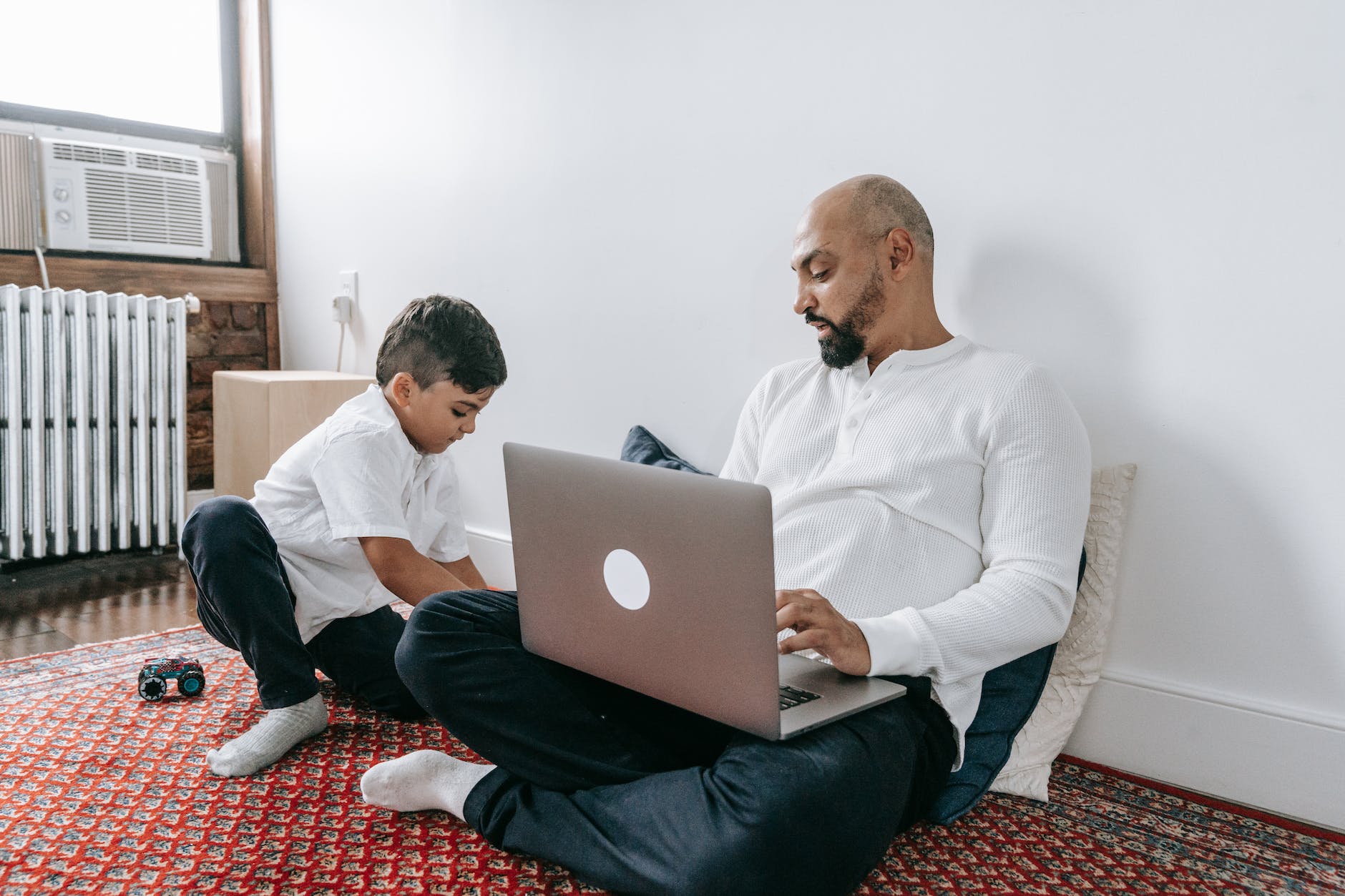
Parents And Children Using Internet
The Internet is one of the great inventions of the 20th century, as it allows such an infinity of possibilities and benefits for society that it has become a practically inseparable issue from our daily lives. Even the way of getting information, communicating and relating between people has changed, both in the case of the Internet itself and the applications and new technologies associated with it, which facilitate its access: smartphones, tablets, social networks, WhatsApp, chat, etc.
If there is a sector of the population that has been most influenced by the arrival of the Internet and ICTs, it is the group of children and adolescents. But the Internet and new technologies are a double-edged sword; on the one hand, they offer enormous advantages for issues such as improving their education and development, promoting creative learning, or providing new forms of entertainment; on the other hand, it entails significant risks as a result of misuses, such as access to content that is not appropriate for minors (violent, sexual, illegal, etc.); the loss of privacy, or the provision of information or personal data of the whole family.
1. Know the Internet and know how it works
It is essential that parents know and learn how the Internet works, what it is for and what new technologies are associated with it. This is the only way to educate children correctly, to help them choose the appropriate options, and thus prevent them from accessing inappropriate or malicious pages or content for them.
2. Establish open communication with our children
They should know that we are willing to help them, answer their questions and advise them, so that a relationship of trust is established in which they feel comfortable and tell us about any problem on the Internet. Parents should be interested in what their children do on the Internet, but without interrogations, respecting their privacy.
3. Avoid prohibiting its use
Banning Internet access can be counterproductive, especially for teens. Children must learn the habits of good use of the Internet through their parents, with their lessons and instructions, so that they become an example to follow. Only in this way will we contribute to responsible use of the Internet by our children.
4. Adopt rules of use
It is always good to adopt age-appropriate Internet usage rules for children (schedules, time of use, content), which will help maintain a balance with your other ordinary activities. Excessive use can be harmful, while restricting its use at meal times or at night can be good measures. It is advisable to avoid the use of computers in the bedrooms.
5. Monitor your actions
It is important to be interested in the activities of children on the Internet. Ask them what they do, what web pages they visit, meet their friends on social networks. A good strategy is also to locate the computer in a busy area of the house, such as the living room, so that we control the connection time and that it becomes a use in view of the whole family, also preventing people with malicious interests can communicate online with our children. Online tools like these can help you monitor your child’s phone usage.
6. Accompany them in the use
Children must be accompanied when surfing the Internet. Both in the sense of accompanying him in the gradual learning about its use, in a positive way, and advancing with him in the digital knowledge that is acquired, to avoid a digital divide between parents and children.
7. Educate responsibly
Teach your children to use the Internet and ICTs responsibly, with respect for others and oneself, so that they know the consequences of their actions at all times. The Internet must be a space for positive coexistence, where they behave politely and avoid conflictive situations (bullying, etc.). Instilling these behavior patterns in them is essential.
8. Raise awareness of the dangers of the Internet
Parents should talk to their children about the dangers of the Internet, and explain what kind of information is not convenient to provide through it. Taking care of personal data, contact, images, etc. the privacy of them and the whole family is safeguarded. It is also convenient to report illegal activities on the Internet (audiovisual downloads, cyberbullying, etc.).
9. Ensure no access to negative content
There are tools that help prevent access to negative and offensive content for our children. Web page filters, firewalls, pop-up blockers, parental control systems, search engines for children and young people, etc. In this way, we improve the safety of our children and young people on the Internet.
10. Accept digital reality
We must accept the reality of the digital environment, since it is present in our society and sooner or later we will have to face it with our children. For this reason, it is better to do it naturally, from the knowledge of the Internet and knowing that there are tools to help us educate them responsibly, and also to help parents in that learning.





